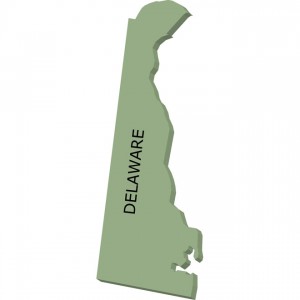Registered in Delaware Is Not At “Home” There: Not Enough For General Jurisdiction
By James Scadden, Oakland on April 20, 2016
 Earlier this week, the Supreme Court for the State of Delaware ruled that a corporation registered in Delaware was nevertheless not subject to general jurisdiction in Delaware. Genuine Auto Parts v. Cepec. This was a decision of some substance, generating a written opinion of some 44 pages responding to the arguments and briefs of not only the plaintiff and defendant, but also several amicus curiae briefs. This is an issue that we have blogged about before (California Court rules no jurisdiction over foreign parent corporations; No in state dealings for years – no jurisdiction; and Out of state defendant? Out of state exposure? File suit somewhere else).
Earlier this week, the Supreme Court for the State of Delaware ruled that a corporation registered in Delaware was nevertheless not subject to general jurisdiction in Delaware. Genuine Auto Parts v. Cepec. This was a decision of some substance, generating a written opinion of some 44 pages responding to the arguments and briefs of not only the plaintiff and defendant, but also several amicus curiae briefs. This is an issue that we have blogged about before (California Court rules no jurisdiction over foreign parent corporations; No in state dealings for years – no jurisdiction; and Out of state defendant? Out of state exposure? File suit somewhere else).
The court framed the issue succinctly:
This interlocutory appeal raises the singular issue of whether Delaware may exercise general jurisdiction over a foreign corporation for claims having nothing to do with Delaware, as price for the corporation agreeing simply to be able to do business in Delaware.
Cepek reversed the decision of the court below, finding that Daimler AG v. Bauman, 134 S. Ct. 746 (2014) “fundamentally undermined” earlier jurisprudence regarding jurisdiction.
Daimler makes plain that it is inconsistent with principles of due process to exercise general jurisdiction over a foreign corporation that is not “essentially at home” in a state for claims having no rational connection to the state.
This was so despite the existence of a Delaware long-arm statute and a Delaware registration statute that had previously been interpreted as effectuating a “consent” to general jurisdiction by foreign corporations registering in Delaware. This is a recurring argument for the plaintiffs’ bar in its efforts to evade or limit Daimler. Cepek explicitly addressed this issue and found that the weight of authority is that registration or similar activity is not enough to evade Daimler.
The plaintiffs’ selection of Delaware as the location of filing may have been driven by the fact that 5 of 7 defendants present in the case were incorporated in Delaware. But Genuine Auto Parts is a Georgia corporation and the alleged exposures occurred in Georgia. Genuine Auto Parts had registered in Delaware and appointed an agent for service of process in Delaware. Plaintiffs argued that by registering in Delaware, Genuine Auto Parts had “consented” to general jurisdiction and prior cases in Delaware supported this contention. Plaintiffs argued that this “consent” rendered this case immune to an application of the logic of Daimler.
This decision is important for at least three reasons. First, the Supreme Court for the State of Delaware acknowledged that Daimler “made a major shift in our nation’s personal jurisdiction jurisprudence” that superseded the numerous prior decisions upon which the plaintiffs relied.
Second, the court supports its decision with strikingly pro-business language, stating:
Every state in the union, and the District of Columbia, has enacted a registration statute that requires foreign corporations to register to do business and appoint an in-state agent for service of process. As the home of a majority of the United States’ largest corporations, Delaware has a strong interest in avoiding overreaching in this sensitive area. If all our sister states were to exercise general jurisdiction over our many corporate citizens, who often as a practical matter must operate in all fifty states and worldwide to compete, that would be inefficient and reduce legal certainty for businesses. Human experience shows that “grasping” behavior by one can lead to grasping behavior by everyone, to the collective detriment of the common good. (emphasis added)
Third, where does this leave the plaintiffs’ bar in multi-defendant cases? For some reason, plaintiffs did not want to file this case in Georgia where the exposure occurred and the plaintiffs were located. It would seem logical that they would then pick a jurisdiction that was “home” to a majority of the defendants. This decision says that if they do so select, they may jeopardize their ability to pursue at least some defendants. What is the answer for the plaintiffs who want to pursue multiple defendants? One response is “file where the exposure occurred.” But what if the exposure occurred in several different states? This is just one of several issues that are yet to be worked out. In the meantime, the lack of clarity seems to inure to the benefit of at least some defendants.
